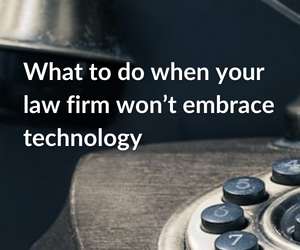The Number One Reason for Rejected eFilings
LawTechnologyToday
SEPTEMBER 23, 2021
Whether law firms are filing into well-established eFiling courts or joining a court that is transitioning to eFiling for the first time, there are a variety of issues that can come up with documents that may cause them to be rejected. . It is even more important, in this case, that the data is accurate.














Let's personalize your content